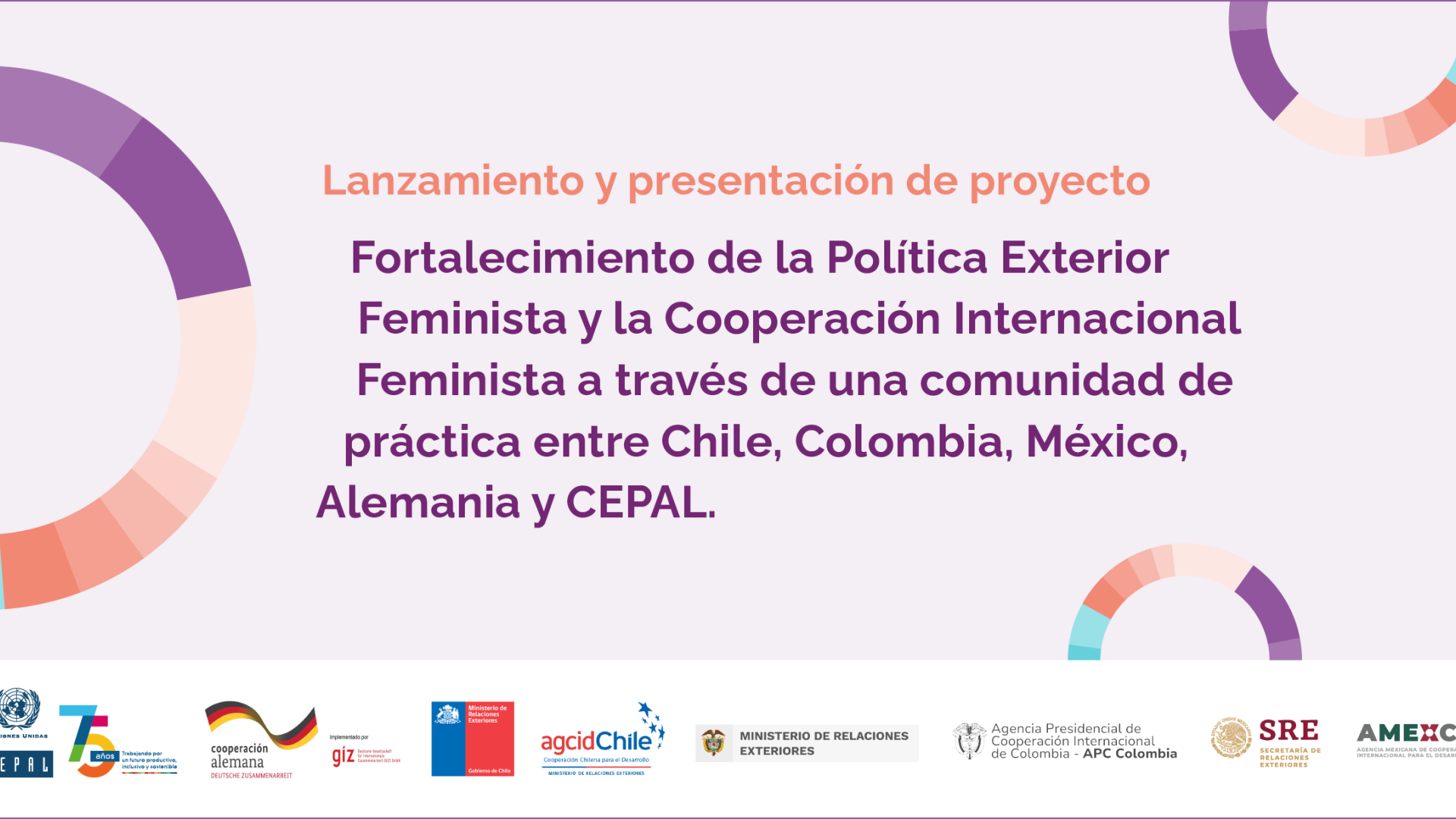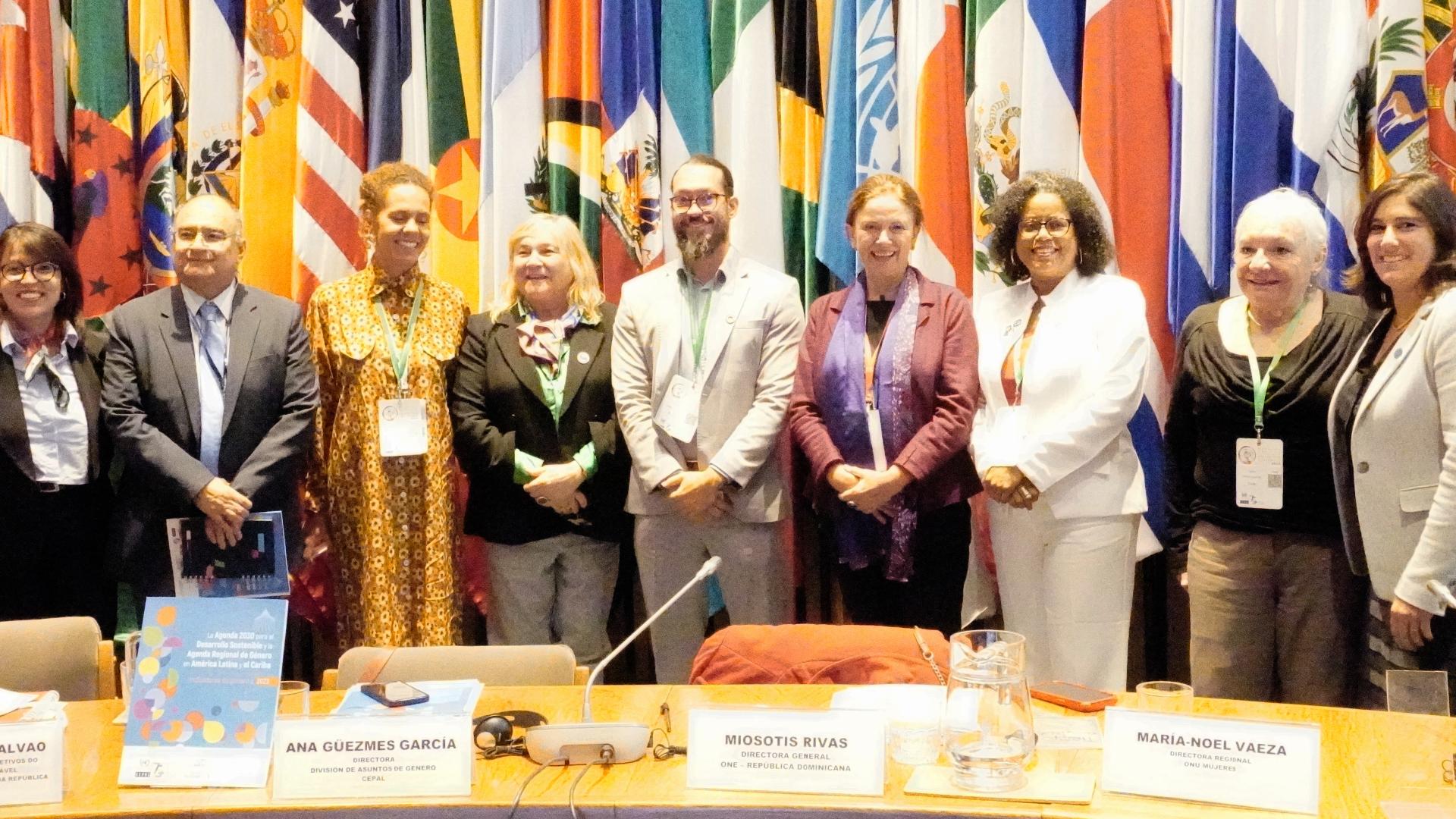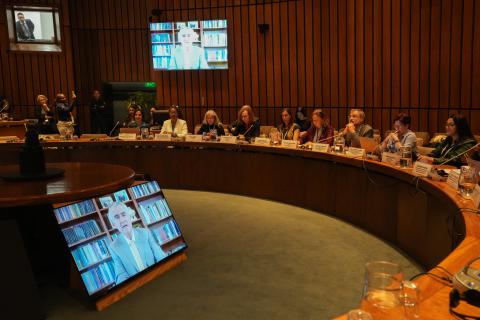Briefing note
"The incorporation of more women in STI is indispensable to bolster the construction of a more inclusive, equitable and sustainable post-COVID future. I am deeply pleased with the commitment we have seen in the region to reduce the gender digital gap through the Regional Alliance for the Digitalization of Women in Latin America and the Caribbean. We are confident that actions like this will allow us to prevent this gap from growing, so that women can access and use technology in a full and meaningful way, and thus achieve our full potential in the society of the future," stated Minister Zalaquett. It is worth noting that the Regional Alliance for the Digitalization of Women in Latin America and the Caribbean was launched in the framework of the Sixtieth Meeting of the Presiding Officers of the Regional Conference on Women in Latin America and the Caribbean, organized by ECLAC in coordination with UN Women in February 2021.
In her speech, Minister Zalaquett emphasized the importance of strenghtening multi-stakeholder coordination, highlighting the role of governments in mainstreaming the gender perspective in STI policies, as well as the participation of academia, civil society, the private sector, United Nations agencies, funds and programmes and other intergovernmental organizations in promoting collective action in this area.
The event also featured perspectives from different regions of the world and included panelists such as Maysoun Ibrahim, Board Member and Chairperson of Innovation Supporters Network (ISN) the Higher Council for Innovation and Excellence; Cassie Lee of the Brooke Ownes Foundation; Funmilola Ikeolu Fagbola, Founder of Rural Girls in Technology (RuGiT), 2019 FWIS Young Talent, Sub-Saharan Africa, and OWSD Fellow Baraah Alsaid Ramadan, EMPACT 2020 graduate of the World Food Programme (WFP).
The event was co-hosted by the Permanent Mission of Chile to the United Nations and the Permanent Mission of Portugal to the United Nations and organizations of the United Nations System that make up the Gender and Science, Technology and Innovation (STI) Work Stream of the UN Inter-Agency Task Team on STI for the SDGs, in particular, the Economic Commission for Latin America and the Caribbean (ECLAC) together with: International Telecommunication Union (ITU), United Nations Educational, Scientific and Cultural Organization (UNESCO), United Nations Economic and Social Commission for Western Asia (ESCWA), United Nations Industrial Development Organization (UNIDO), United Nations Office for Outer Space Affairs (UNOOSA), World Intellectual Property Organization (WIPO) and World Food Programme (WFP).



